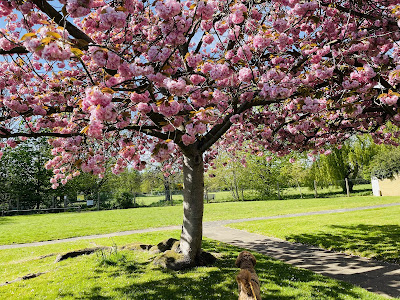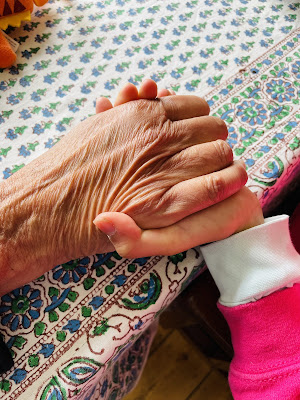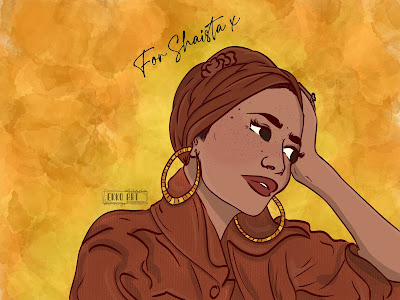I am surrounded by churches in the village where I live. Samwise and I turned right today, and walked down to the church past the railway line. It's a quick decision, and the sun seemed to be calling us thataway. We made a nifty getaway from his nemesis, a tiny dachshund with war on his mind, and made it to the church. Sitting outside on a bench with two crutches propped beside him, was a man eager for a chin wag. He was John, ex police officer, 57 years in England and still in possession of his County Kerry accent. "I'm Catholic,' he said, 'but I believe there's only one God and I come to this church for the peace.' His mobile phone was lying beside him - he'd been trying to get a hold of his sister to wish her a happy St. Patrick's Day. I asked him to explain the origins of the day, and we both commiserated over the tragedy befalling Ukraine.

Two days ago, I was approaching the other church (Sammy and I had turned left this time), and I saw a man praying his namaz on a prayer mat on the tiny triangle of green outside the church. He had stopped his car, and was observing the evening prayer. I couldn't believe it! At this very church, twenty-nine years ago, my father had been pointedly informed by the choice of words in the sermon that he would only be welcome if he converted from his unwelcome religion. And now, the namaz. I wanted to applaud the man for his... courage? Defiance? Simple observation of prayer? I wasn't sure. So I dawdled with Sammy until the man rolled up his mat, and I waved in a friendly fashion at the companion in his car. They waved back. And onwards we all went. If only it could always be this way.
Grief, Observed
‘The act of living is different all through. Her absence is like the sky, spread over everything.’
I settle into the graveyard with C.S. Lewis,
observing grief together.
All my childhood I was accused
of being too sensitive.
And make no mistake,
it is an accusation.
No one ever declares it worthy of praise.
Not in a girl.
For how will she cook and clean and submit easily,
if her mind dissects and discerns?
When they say too sensitive,
they mean too knowing.
It’s a Sunday and the church doors are open.
I walk into the incense.
Mary greets me, I like to think,
and Jesus invites me closer.
I approach. And see the candle tree,
electric lighter awaiting me.
Every night we light a divo, my mother and I,
keeping going the Zoroastrian fire.
Here, the lights are blood red, not white.
I place one like a star atop the pyramid wire.
I recite, out loud, a gatha and a surah,
binding myself to as many of the prophets
as will have me. Come now rain!
Come now thunder!
Why do I fear? The fire
tree protects me.
© Shaista Tayabali, 2022 (linked to this evening's dVerse Poetry)
To end in hope then, with news of another mother and daughter, Nazanin Zaghari-Ratcliffe and her daughter Gabriella, finally united in freedom, back in England, thanks to the determined, relentless efforts of her husband Richard. A long road ahead, of course, but a little corner of peace begun.


























































































